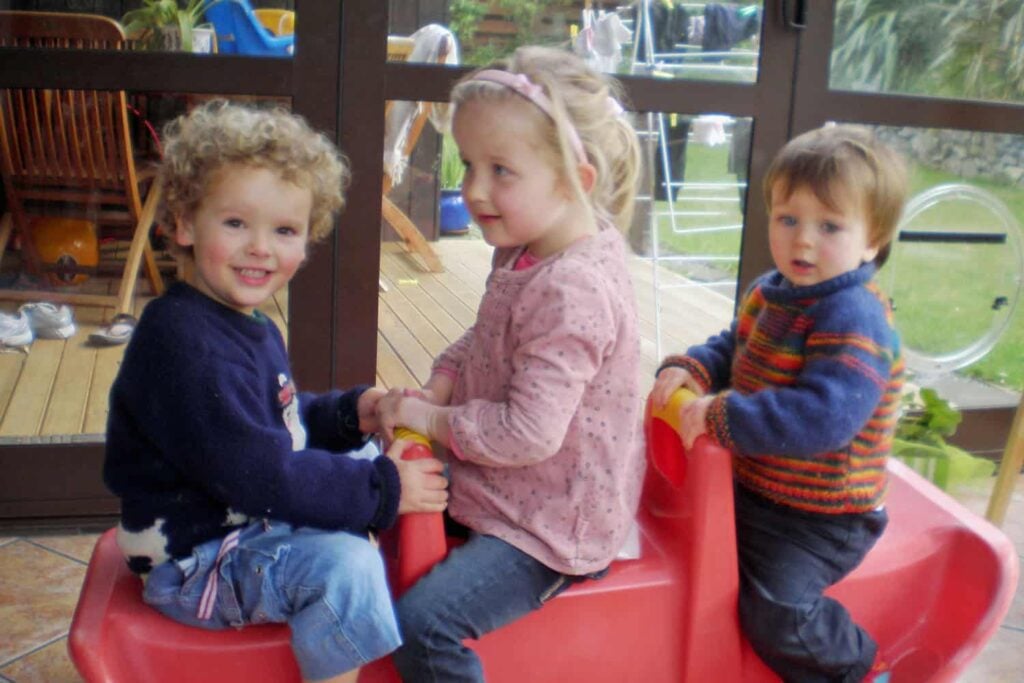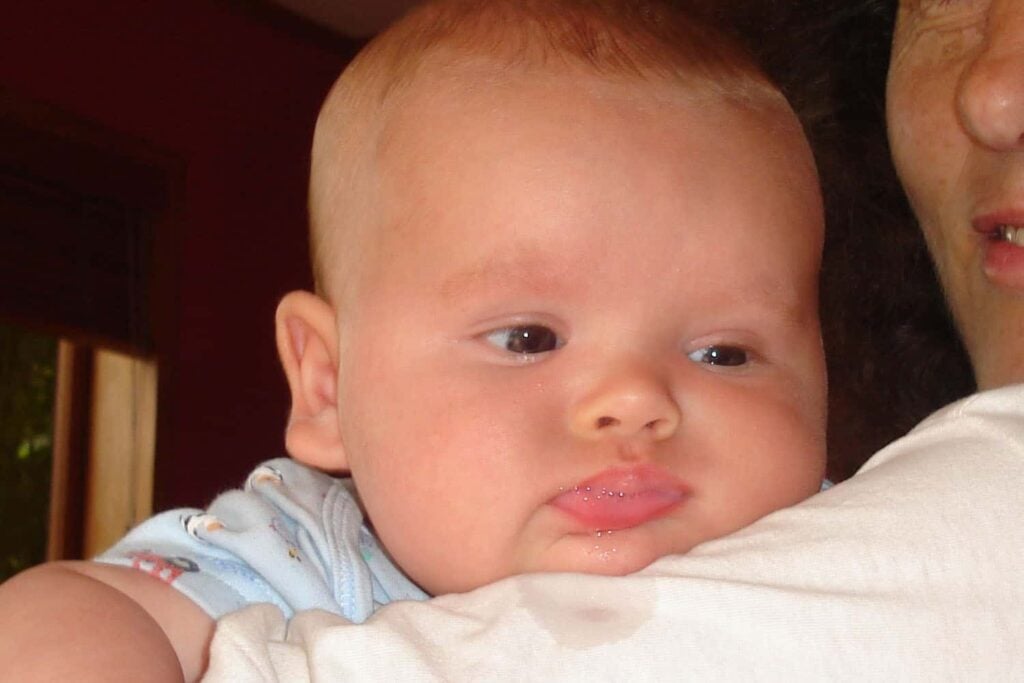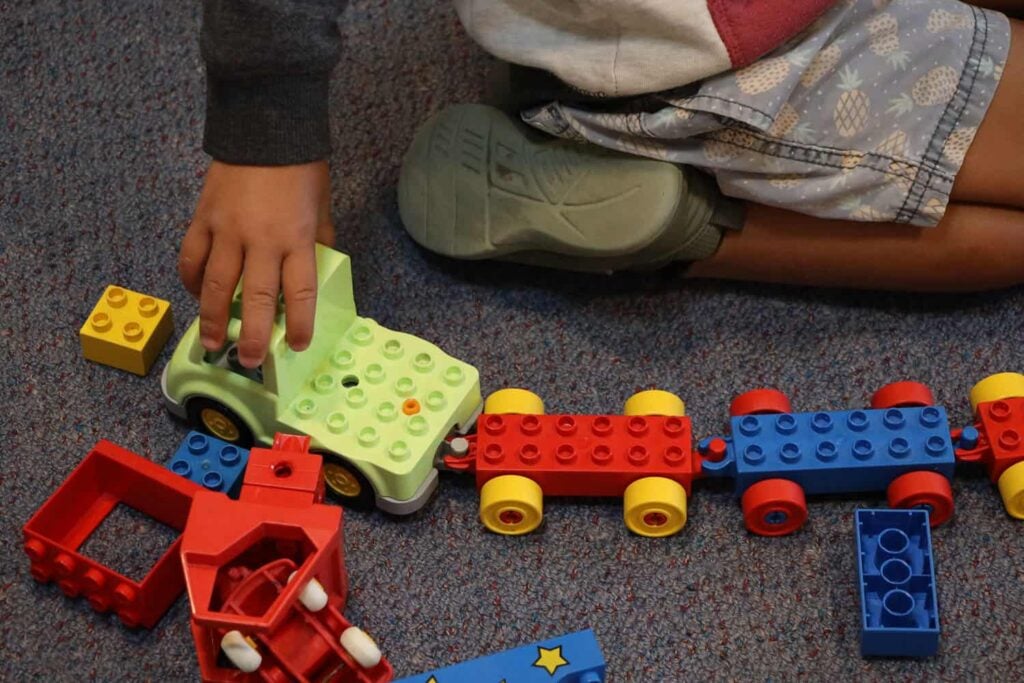The titles, authors and abstracts for papers published in the NZ International Research in Early Childhood Education Journal, Volume 22, No. 1, 2019 are shown below. To read any article a member login is needed – join us if you are not already a member. Many libraries subscribe to the journal so you may be able to view articles through your library’s system.
Order a copy of any article
Type in below the year, volume number and author(s) of the article you wish to order. The price per copy is NZ $19. Once you have completed your order it will emailed to you within 24 hours.
Original Methodology Paper
Researching pedagogies for sustainability in Australian bush kinder
Fran Hughes
TAFE, New South Wales Australia
Abstract
While there is a growing awareness of the need for children to spend more time in natural settings, the pedagogical link between education for sustainability (EfS) and nature requires further investigation. The assumption that children’s connection with nature equates with EfS is a key issue, as is educators’ understandings of their own pedagogical roles in relation to a nature-sustainability nexus. This article is a reflection on the framework and methodologies used in a doctoral study which explored how the links between nature and sustainability are perceived by early childhood educators in bush kinder settings in Australia, and the implications for their pedagogy. Data was collected over an eight month period where insights into the perceptions of the educators about sustainability and nature pedagogies were gained. Guided by a social constructivist theoretical framework, a methodology based upon Participatory Action Research (PAR), Appreciative Inquiry (AI) and Case Study was employed. In particular, PAR and AI are methodologies that supported the educators’ agency in transformative change. Data collection methods included individual interviews, focus groups, educator reflective journals and researcher participant observation field notes. The focus of this paper is to report on an analysis of the study methodology and process of data collection.
Key words: Education for sustainability, bush kinder, PAR, AI, case study, pedagogy.
Full reference
Hughes, F. (2019). Researching pedagogies for sustainability in Australian bush kinder: A reflective analysis on a framework and methodologies. NZ International Research in Early Childhood Education Journal, 22(1), 1-14.
Original Research Paper
Neoliberalism and post-colonialism in conflict: Hybridisation in early childhood in the South Pacific
Margaret Sims
University of New England, Armidale, Australia
Lavinia Tiko
University of South Pacific, Suva, Fiji
Abstract
The colonial history of the South Pacific resulted in generations of South Pacific Island children being educated in what is fundamentally a western system, aiming to prepare them for employment in what is increasingly becoming a western economic environment. In recent years this environment has become strongly influenced by neoliberal ideology which positions children as human capital, the employable citizens of the future. Accompanying this is a growing post-colonial movement which positions Indigenous values and practices as crucially important in shaping the identity of children. Part of this is the process of recognising that Indigenous knowledge has an important place in Indigenous nations. It is in this context that citizens in many previously colonised nations are attempting to develop their own early childhood policies and systems in order to deliver the kind of services and support that will best achieve their vision for the future. In this paper we explore the understandings of early childhood professionals in the South Pacific. These professionals are the leaders, and future leaders whose work will shape the way in which early childhood services develop over the following years. Thus their understandings provide an indication of the ways in which the tensions between western neoliberalism and Indigenous post-colonialism may be enacted in the context of South Pacific nations.
Key words: Indigenous education, leadership, neoliberal ideology, post-colonialism.
Full reference
Sims, M. and Tiko, L. (2019). Neoliberalism and post-colonialism in conflict: Hybridisation in early childhood in the South Pacific. NZ International Research in Early Childhood Education Journal, 22(1), 15-30.
Original Research Paper
Factors influencing the use of digital technology in ECE
Robyn Anderson and Hwee Leng Toh-Heng
James Cook University Singapore
Abstract
Although digital technology in early childhood classrooms can support the delivery of quality and relevant programs to young children in today’s digital world, a few studies have shown that some early childhood teachers are concerned about integrating such technology into their classrooms. While these studies have been conducted in the United States and Turkey, no such studies have been undertaken in Singapore. To understand how early childhood educators in Singapore use digital technology and the barriers they face in integrating it into their classrooms, a case study research comprising interviews with 35 early childhood educators in Singapore was conducted. The study found that while teachers had some concerns about the use of digital technologies in early childhood classrooms, they agreed that its informed use in those classrooms could enhance children’s learning, cater for diversity, and provide a learning tool relevant for today’s society. The study recommended professional development for teachers on how to incorporate the play-based use of digital technologies in classrooms and early childhood settings.
Key words: Digital technology, learning, early childhood education, Singapore.
Full reference
Anderson, R. and Toh-Heng, H.L. (2019). Factors influencing the use of digital technology in early childhood education. NZ International Research in Early Childhood Education Journal, 22(1), 31-45.
Original Research Paper
Advanced empathy in the early years – a risky strength?
Angela Hodgkins
University of Worcester, UK
Abstract
Empathy is commonly accepted as an essential skill for early childhood practitioners and the importance and benefits of empathy are widely understood. However, there is evidence to suggest that the use of advanced empathy techniques can lead to stress and ‘compassion fatigue’ in some practitioners; thus, it can be a ‘risky strength’. The aim of this study was to identify the use of advanced empathy among practitioners and to then identify the emotional impact of this work on their lives. This small-scale research suggests that there is indeed an emotional cost to practitioners and that many practitioners are struggling to find a work-life balance. Although the participants described a wide variety of coping mechanisms there is clearly still a need for focussed and consistent support within the profession. There is also a need to include emotional resilience education in training and professional development courses.
Key words: Empathy, early childhood, professionalism, compassion, stress, coping.
Full reference
Hodgkins, A. (2019). Advanced empathy in the early years – a risky strength? NZ International Research in Early Childhood Education Journal, 22(1), pp. 46-58.
Original Research Paper
Embedding parents’ perspectives in the discourse for quality education and care in the early years
Emma Bailey
Early Years Educator, Worcester, UK
Carla Solvason
University of Worcester, UK
Abstract
The Early Years sector in the UK is gripped by the notion of quality; quality improvements, quality experiences, and better-quality staff in order to build ‘foundations for quality’ (Department for Education, 2012). However, multiple conflicting perspectives exist regarding a definition for quality. This research contributes to this discussion, locating the lived experiences and expectations of parents of young children in registered settings in relation to the existing dynamic discourse for quality.
In this article existing literature is reviewed to ascertain the links between quality and leadership and to explore the value of parent partnership within quality provision. Then by investigating the perspectives of two small samples of parents (one from an online regional parenting discussion board, the other from a small domestic setting) we gain a deeper understanding of how some parents perceive quality Early Childhood Education and Care. Qualitative questionnaires and ‘purposeful conversations’ (Kvale, 1996) are analysed to reach the conclusion that the process of assessing quality is an intuitive one; based upon a sense of familiarity, safety and the emotional well-being of those in the setting.
The empirical data collected contends the need for flexibility in parent partnerships, providing a range of structured opportunities for engagement in discourse, in order to allow for greater inclusivity. It also highlights the importance of professional interactions not becoming tokenistic, as this undermines authentic dialogue and relationships with families.
Key words: Quality, discourse, perspectives, parent partnership, early years provision.
Full reference:
Bailey, E. & Solvason, C. (2019). Embedding parents’ perspectives in the discourse for quality education and care in the early years. NZ International Research in Early Childhood Education Journal, 22(1), pp. 59 – 71.
Original Research Paper
Supporting parents to use schema theory to understand and manage challenging behaviour in the home
Samuel Proctor and Carla Solvason
University of Worcester, UK
Abstract
Teachers of young children often find themselves discussing with parents ways to manage their children’s challenging behaviours in the home. The motivation for this research was to find an effective way to share schema theory, an approach that had proved helpful for managing the challenging behaviour of Special Educational Needs and Disabilities children, with parents. The aim was to provide support for parents, determine their views on the effectiveness of schema theory as the basis for a strategy for managing challenging behaviour at home, and ascertain whether using the approach could have a positive impact upon the quality of family life. A practitioner action research approach was taken, whereby an area of practice was identified, developed and reviewed. The findings suggest that the sessions put on for parents: reduced children’s anxiety; helped parents manage their behaviours; improved the children’s relationships with siblings and improved parents’ well-being. Although this particular research is based within a special needs setting catering for a range of ages, a better understanding of these approaches is useful to all parents and practitioners; and to those in the early years in particular.
Key words: Schema theory; challenging behaviour; special educational needs; disabilities; double loop learning; reflective learning; coaching; mentoring.
Full reference:
Proctor, S. & Solvason, C. (2019). Supporting parents to use schema theory to understand and manage challenging behaviour in the home. NZ International Research in Early Childhood Education Journal, 22(1), pp. 72 – 85.
Original Research Paper
Should we consider rhizomatic thinking when educating young minds?
Johanna Cliffe
The Learning Institute, UK
Carla Solvason
University of Worcester, UK
Abstract
There is a tacit understanding within early years education that children’s thinking should be understood and nurtured in order to produce adaptive and innovative learners. This article argues that traditional epistemological approaches do not go far enough in understanding, responding to and planning for children’s complexity of thought. We propose and justify that an awareness of rhizoanalysis could enable practitioners to engage with children’s knowledge differently, through asking questions such as: how does this work? And what new thought does this make it possible to think? Through exploring literature and previous research by one of the authors, this article proposes that not only does rhizomatic thinking occur naturally within children’s playful encounters but having an awareness of rhizoanalysis, provides educators with opportunities to understand and re-conceptualise children’s thinking and cognitive development.
Key words: Rhizoanalysis; thinking; cognitive development; early childhood education; Deleuze.
Full reference:
Cliffe, J. and Solvason C. (2019). Should we consider rhizomatic thinking when educating young minds? NZ International Research in Early Childhood Education Journal, 22(1), pp. 86 – 100.









